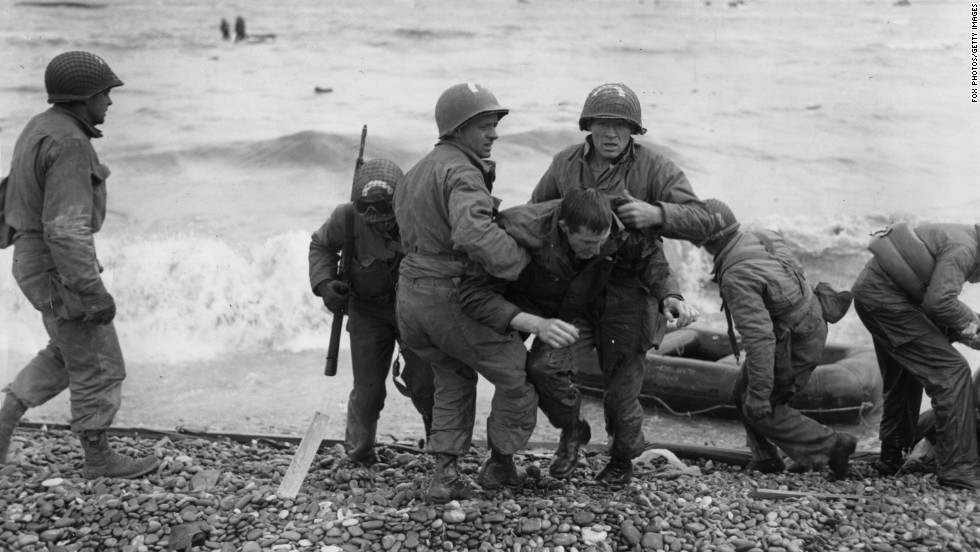34,000 American soldiers.....their average age is just 22 years old.
Sgt. Ray Lambert, a medic with the 1st Infantry Division, was in the first wave to hit the beach on D-Day.
"When we got within a thousand yards of the beach, you could hear the machine-gun bullets hitting off the front ramp of the boat," recalled Lambert, 83, a retired electrical engineer.
"The ramp went down, and we were in water over our heads. Some of the men drowned. Some got hit by the bullets. The boat next to ours blew up. Some of those men caught fire. We never saw them again," he said.
"When we got to the beach, I said to one of my men, Cpl. Meyers, `If there's a hell, this has got to be it.' And it was about a minute later that he got a bullet in his head.
"To make a long story short, only seven of the 31 men on my boat made it to the beach," said Lambert, one of several thousand U.S., British and Canadian veterans who have returned to Normandy to take part in Sunday's 60th anniversary ceremonies.
Lambert was severely wounded on D-Day but survived the ordeal, and--miraculously--so did Cpl. Herbert Meyers. The two were quite surprised to see each other at a veterans' reunion many years later.
George Allen, 86, a retired New Jersey farmer and another in the group of returning vets, was a young first lieutenant with a 1st Infantry Division unit that landed on bloody Omaha.
"All I remember is mayhem--dead bodies floating in the water, busted equipment," he said. "We lost a lot of good men that day."
Phil Morehouse, 85, from Darien, Conn., and a captain in the 1st Infantry, came in on the fifth day of the invasion. His brother came in the first wave.
"My job was to bring in 800 soldiers to replace the expected casualties--little thinking that my brother, in the 16th Infantry, would be one of them.
"A sergeant I knew later told me that when [my brother's] landing craft beached, he was immediately hit in the leg. They dragged him up onto the beach, and he was hit in the head. He was killed at about 6:30," said Morehouse, a retired lawyer.
Nearly 40 years later, Gen. Omar Bradley, commander of U.S. ground forces on D-Day, would write in his memoir: "Omaha Beach was a nightmare.
"Even now it brings pain to recall what happened there on June 6, 1944. I have returned many times to honor the valiant men who died on that beach. They should never be forgotten. Nor should those who lived to carry the day by the slimmest of margins," Bradley wrote.
Those who lived have their own rituals of remembrance. Allen, the retired farmer, said that every Christmas Eve he slips out of the house to spend a moment with his fallen comrades.
"I look up in the sky, and I talk to my men. I talk to every one of them," he said.
Capt. Walter Schilling of the 116th Infantry Regiment, 29th Division, was in the lead landing boat of the third wave to hit Omaha. He was killed by a shell before the steel ramp went down, according to historian Stephen Ambrose's account of the battle.












